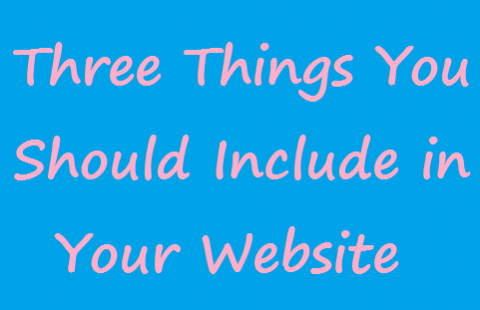Three Things You Should Include in Your Personal Website
Nov 20,2015
No matter what career path you choose to pursue, having a personal website can increase your employment appeal.
A personal website not only allows you to express yourself and your ideas, but it also gives you the chance to advertise yourself to a global audience.
If you want to create a personal website but aren't sure what to include, there are three essential things that can serve as your starting points.
1. A resume
Resumes are obviously very important to most employment recruiters. Employers often look to resumes when determining whether or not you meet the criteria for a particular job.
However, the resume you post to your website will probably be a little different from your regular resume. For example, you may not want to include your home address on your online resume for the world to see, even though it’s probably listed on your regular resume.
No matter what personal information you choose to omit from your online resume, make sure that it can be easily accessed from your site’s homepage. If a recruiter has to dig through pages and pages of your site just to view your resume, he or she may become impatient and move on to another site.
2. A portfolio of your work
If the point of your website is to advertise yourself, there is no better way to do that than by including a portfolio of your work.
If you're an artist or a photography aficionado, create a photo gallery of your best work. If you're a writer, include electronic versions of your articles or stories. If you're a musician or a film guru, incorporate an audio or video portfolio into your site.
While it’s relatively easy to create a portfolio if you fall into one of the above categories, you can create a portfolio for any career path. If you're an aspiring scientist, include information about studies you have conducted. If you want to become an educator, post a video of yourself teaching one of your best lesson plans.
Your portfolio opportunities are nearly endless. Just be sure to create something unique, memorable and easily accessible.
3. A way for people to contact you
If an employer is impressed with the material on your site, he or she may want to contact you. However, if you have not provided a contact link, no one will be able to reach you, and you could miss out on potential job opportunities.
If you don’t want to include personal contact information such as your phone number or email address on your site, there is one simple alternative: create a contact form.
Contact forms typically include name, email and message fields that must be filled out and submitted by any person wishing to contact you. You can then view the submissions and decide whether or not you want to respond.
Depending on your goals for your site, you will most likely want to expand your site material beyond these three categories. However, with these building blocks in mind, you should be well on your way to creating an informative and successful website.





